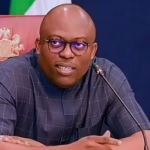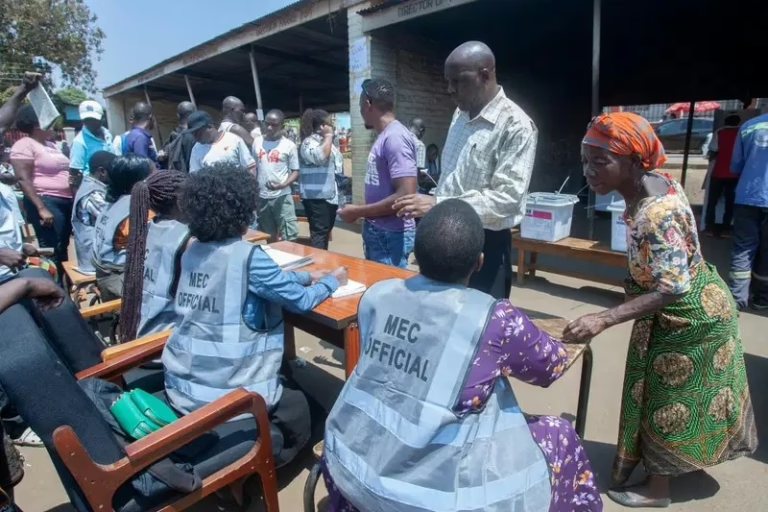Malawi is currently engaged in the vote-counting phase following a highly contested general election held this past Tuesday. Early indications reveal a tight race between the incumbent President Lazarus Chakwera and his main challenger, former President Peter Mutharika.
This election unfolded against a backdrop of mounting economic challenges in the southern African nation, factors that could significantly impact Chakwera’s bid for a second term. Inflation has soared past 27% in recent months, accompanied by a severe scarcity of foreign currency, which has disrupted the importation of essential commodities such as fuel, food, and fertilizers. With the World Bank estimating that more than 70% of Malawians live below the poverty line, widespread public discontent is evident.
Political analyst George Chaima told AFP that initial results suggest strong support for Mutharika, who previously led the country from 2014 to 2020. “The early data points to a national preference for Mutharika, as many citizens feel Malawi was better off during his administration,” Chaima remarked.
“While his leadership was not without shortcomings, the economic difficulties we face today were less severe back then,” he added. “The affluent elite now enjoy a comfortable lifestyle, seemingly disconnected from the hardships endured by the majority.”
Related: Force CID investigates claims involving Rema and allegations of assault by an interior decorator
At 85 years old, Mutharika, a former law academic, was unseated by Chakwera, aged 70, in a historic 2020 election rerun after the 2019 vote was annulled due to electoral malpractice, including accusations of tampering with tally sheets using correction fluid.
Since 2020, Malawi’s electoral law requires a candidate to secure more than 50% of the vote to win outright; if no candidate achieves this, a runoff election must be held within 60 days.
The Malawi Electoral Commission is expected to begin releasing preliminary results on Thursday, with official certified outcomes anticipated within eight days.
Michael Kaiyatsa, executive director of the Centre for Human Rights and Rehabilitation (CHRR), commented, “The contest is extremely tight.” He noted that Mutharika’s early surge was surprising given his previous defeat. “Voter preferences shift, and five years is a long time in politics,” he explained.
“Many people are grappling with hunger and have been pushed deeper into poverty due to the harsh economic conditions,” Kaiyatsa stressed.
Mutharika and his Democratic Progressive Party (DPP) campaigned on a platform promising economic revival, pledging to resolve the foreign currency shortage within six months, reduce national debt, and restore what they call “seasoned leadership.”
Environmental crises have further exacerbated Malawi’s difficulties. The country suffered a severe drought in 2024, following a catastrophic cyclone the previous year that claimed over 1,000 lives, further destabilizing its agriculture-reliant economy.
At his final campaign rally last weekend, President Chakwera acknowledged the nation’s hardships and pledged to enact necessary reforms. “I have listened to your concerns sincerely. We are dedicated to setting things right,” declared the Malawi Congress Party (MCP) leader.
Voter participation was strong, with over 64% of the 7.2 million registered voters casting ballots in Tuesday’s elections, which also included parliamentary and local government races. As the nation awaits the official announcement of results, Malawians remain cautiously optimistic for progress amid uncertainty about what lies ahead.

















